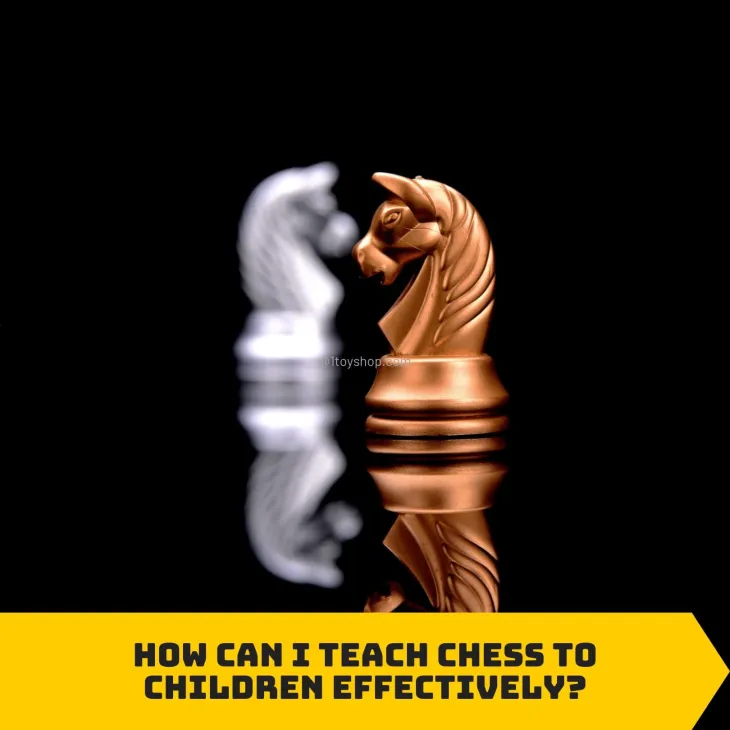How Can I Teach Chess To Children Effectively?
On
20/09/2024Reading time:
9 min
Summary:
Remember, the most important thing is to make chess fun and enjoyable for children. By following these strategies, you can help them develop a lifelong passion for the game and reap the many benefits it offers.

To Get More Wonderful Toys And Take Discount Today. Click On The Image.
Chess, a strategic board game that has captivated minds for centuries, offers numerous cognitive benefits for children. Teaching chess to children can enhance their problem-solving skills, critical thinking abilities, and spatial awareness. Here are some effective strategies to introduce chess to young minds:
Start Early: Introducing chess at a young age can foster a lifelong love for the game. Begin with simplified rules and basic concepts to make the learning process enjoyable and accessible.
Use Visual Aids: Utilize colorful chess sets, diagrams, and online resources to help children visualize the board and understand the movements of the pieces.
Play Games: Incorporate fun and interactive chess games and puzzles to make learning engaging. These games can help children practice different tactics and strategies in a low-pressure environment.
Focus on Fundamental Concepts: Teach children the basic rules and movements of each chess piece. Emphasize the importance of understanding the king's safety and the concept of checkmate.
Encourage Practice: Regular practice is essential for improving chess skills. Encourage children to play with friends, family, or online opponents. There are also numerous chess apps and websites that offer interactive learning experiences.
Provide Positive Reinforcement: Offer praise and encouragement to motivate children to continue learning. Celebrate their successes, no matter how small, to build their confidence.
Join a Chess Club: Consider enrolling children in a local chess club to provide them with opportunities to compete against other players and receive guidance from experienced coaches.
Teach Tactics and Strategies: As children become more proficient, introduce them to basic chess tactics and strategies, such as forks, pins, and skewers. These techniques can help them understand the nuances of the game and make more informed decisions.
Participate in Tournaments: Encourage children to participate in chess tournaments to gain experience and test their skills against other players. This can also help them develop a competitive spirit and learn from their mistakes.
Make Chess a Family Affair: Involve the whole family in chess to create a positive and supportive learning environment. Play together, watch chess matches, and discuss strategies as a family.
Source: Team 1ToyShop (1.T.S) compiled, analyzed and wrote. Pls dont reup without source. Many thanks.
_a730c.png)
7 Benefits Of Chess For Brain Development
Author name
29.03.2024
Chess: A brain-boosting game for all ages. In recent years, researchers have begun to study the benefits of chess for brain development. They have found that chess can improve a wide range of cognitive skills, including:

Chess Toys For Toddlers: Fostering Early Cognitive Development And Playful Learning
Author name
16.05.2024
The early years of a child's life are a crucial period of rapid cognitive development. During this time, young minds are like sponges, absorbing information and forming connections at an astonishing pace.

Educational Toys That Make Learning A Joy: Chess Toys
Author name
21.05.2024
Where Knowledge And Entertainment Intertwine
In a world saturated with digital distractions and screen time, it's refreshing to discover toys that not only entertain but also educate. Chess toys, with their rich history and engaging gameplay, stand out as prime examples of educational toys that seamlessly blend knowledge and entertainment, making learning a joyful experience for children of all ages.
